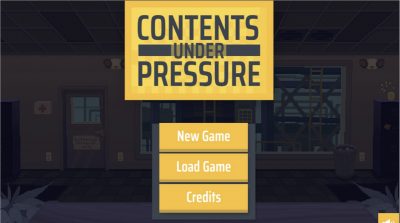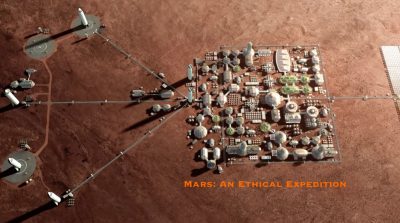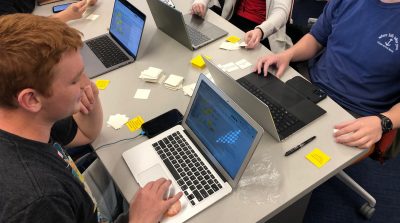Game-based and game-inspired educational techniques: Our team seeks to use game-based and game-inspired educational techniques to study and improve both student engagement and student learning. We use multiple platforms, including card games, digital games, and narrative games to expose students to complex engineering topics in novel and engaging ways.



Process Safety Education
Chemical process safety education is an important intersection between academia and industrial practice. Our team works on the combining our above research areas – game-based education and ethical reasoning – and applying it to understanding how students (who typically have minimal process safety experience) think about process safety questions. We seek to develop educational best practices and assessments that positively contribute to process safety education.
Our team, which works collaboratively with researchers at Rowan University, North Carolina State University, and the Rose-Hulman Institute of Technology, have developed numerous interventions to assess how chemical engineering students make process safety judgments.
- Contents Under Pressure (CUP): Contents Under Pressure is a process safety game/immersive digital environment developed in collaboration with award-winning educational game designer Filament Games with funding from the National Science Foundation. In CUP students assume the role of a mid-level process safety engineer at a chemical process facility. With both a supervisor and a number of direct reports, student must make decisions that that take into account the safety of the plant, productivity, their personal relationships with colleagues, and time constraints. CUP is designed to be played over a period of about two weeks, but there is also a version that can be played in one sitting. Our work has shown that by providing students with this realistic pre-authentication practice environment, they develop a better understanding of the complexities inherent in process safety judgments as well as make decisions that are more in-line with those expected from practitioners at their age and experience level.
- Engineering Process Safety Reasoning Instrument (EPSRI): The EPSRI is a research instrument in the tradition of the DIT-2 or the EERI, which has been contextualized to the process safety space. Based on Kohlberg's Theory of Moral Development, the EPSRI defines a number of different process safety scenarios and then asks students to choose possible courses of action as well as indicate the relative importance of a number of different considerations on their choice. This instrument has been tested and validated in a variety of collegiate settings, and details on it's development can be found Digital Object Identifier (DOI) Foundation.
Most Recent Publication: Stransky, J., Bodnar, C., Bassett, L., Cooper, M., Anasatsio, D., and Burkey, D. (2023). Engineering Process Safety Research Instrument: Assessing student's moral reasoning in process safety contexts. Education for Chemical Engineers, 42, 44-53. https://doi.org/10.1016/j.ece.2022.11.004
Ethics Education for Engineering Students
How students develop from their first-year, with little domain-specific knowledge, to practicing engineers during the course of their collegiate experience is an area of interest, especially with respect to professional skills – including development of an ethical code and moral development. We seek to study students’ thinking with regard to ethical reasoning and determine best practices for instruction.
Our team, which works collaboratively with researchers at the UConn Neag School of Education, the University of Pittsburgh, and the New Jersey Institute of Technology, have developed numerous ethically focused games that we use in first-year engineering instruction.
- Cards Against Engineering Ethics (CAEE): Based on the popular card game Cards Against Humanity, CAEE is a collaborative card game where the prompt and response cards in the classic CAH have been contextualized to ethical scenarios within engineering. One phenomenon that is often observed in traditional ethical education is social desirability bias (SDB), where students or respondents will clearly understand that their ethical reasoning is being tested and therefore respond in a manner they believe the instructor wants to see. Game-based educational interventions may be able to help overcome SDB because within the context and rules of the game, socially undesirable responses may actually represent the winning condition. By framing ethical scenarios in this way, we can encourage students to engage more deeply with challenging ethical dilemmas and have rich conversations about their choices.
- Mars: An Ethical Adventure: While a card game such as CAEE is suitable for a single class period, Mars: An Ethical Adventure is designed in a more narrative style and depending upon the instructors' wishes can be played in a single extended sitting or spaced out over a period of weeks, allowing additional time for reflection. The latest version of Mars is built upon the Godot Engine and is a fully acted audio narrative with a variety of characters. Placing the student in the role of an administrator at a Martian settlement, the game presents students with regular ethical dilemmas that they must consider. The narrative branches and presents different outcomes and audio depending on the path an individual student chooses. This narrative approach immerses the student in their choices and we use the theoretical lens of situated cognition to help understand how students make complex, contextualized ethical decisions.
Most Recent Publication: Burkey, D. D., Cimino, R. T., Young, M. F., Dahm, K. D., & Streiner, S. C. (2022) It's All Relative: Examining Student Ethical Decision Making in a Narrative Game-Based Ethical Intervention, 2022 IEEE Frontiers in Education Conference (FIE) - Uppsala, Sweden. IEEE. https://doi.org/10.1109/FIE56618.2022.9962629
Large-Scale Student Support Grants
- LSAMP: Northeast Louis Stokes Alliance for Minority Participation